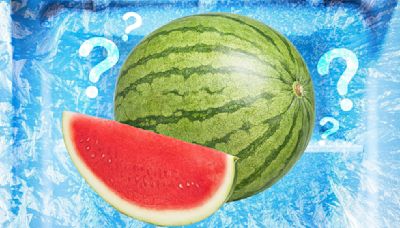Search results
Freezing is one of the oldest and most widely used methods of food preservation; since as long ago as 1842, freezing has been used in an ice and salt brine. In freezing, flavours, smell and nutritional content generally remain unchanged.
Lesson 10. FREEZING: PRINCIPLE, METHODS AND APPLICATIONS. 10.1 Introduction to Freezing. Freezing preservation is one of the most beneficial preservation methods. It involves, conversion of liquid content of food into ice crystals, which lowers down water activity and microbial growth is arrested due to cold shock.
Contents. FREEZING definition: 1. extremely cold: 2. turning to ice: 3. the temperature (0°C) at which water becomes ice: . Learn more.
May 5, 2019 · We all have a basic idea of what "freezing" is. Get the scientific definition of freezing, along with an example, here.
freezing, in food processing, method of preserving food by lowering the temperature to inhibit microorganism growth. The method has been used for centuries in cold regions, and a patent was issued in Britain as early as 1842 for freezing food by immersion in an ice and salt brine.
May 3, 2023 · For example: water, sugar, muscle tissue, and air influence the freezing process. Rapid freezing improves the quality of the food. The faster food freezes, the smaller the crystals that form. Small crystals do less damage to cell walls. Slow freezing produces large ice crystals that punch through cell membranes.
Dec 31, 2020 · The freezing point is the temperature at which a liquid changes into a solid, while the melting point is the temperature at which a solid changes into a liquid. For most practical purposes, the two temperatures are the same. So, the melting point of water is also 32 °F, 0 °C, or 273.15 K.
Freezing point, temperature at which a liquid becomes a solid. As with the melting point, increased pressure usually raises the freezing point. The freezing point is lower than the melting point in the case of mixtures and for certain organic compounds such as fats.
Nov 21, 2023 · Freezing is the process of turning a liquid into a solid and requires the removal of heat to occur. One example of freezing occurs as a result of weather.
Cooling. If water (liquid) is cooled, it changes to ice (solid). This change is called freezing. Water freezes at 0°C. As the ice heats up, it melts and turns into water. What are freezing and ...


